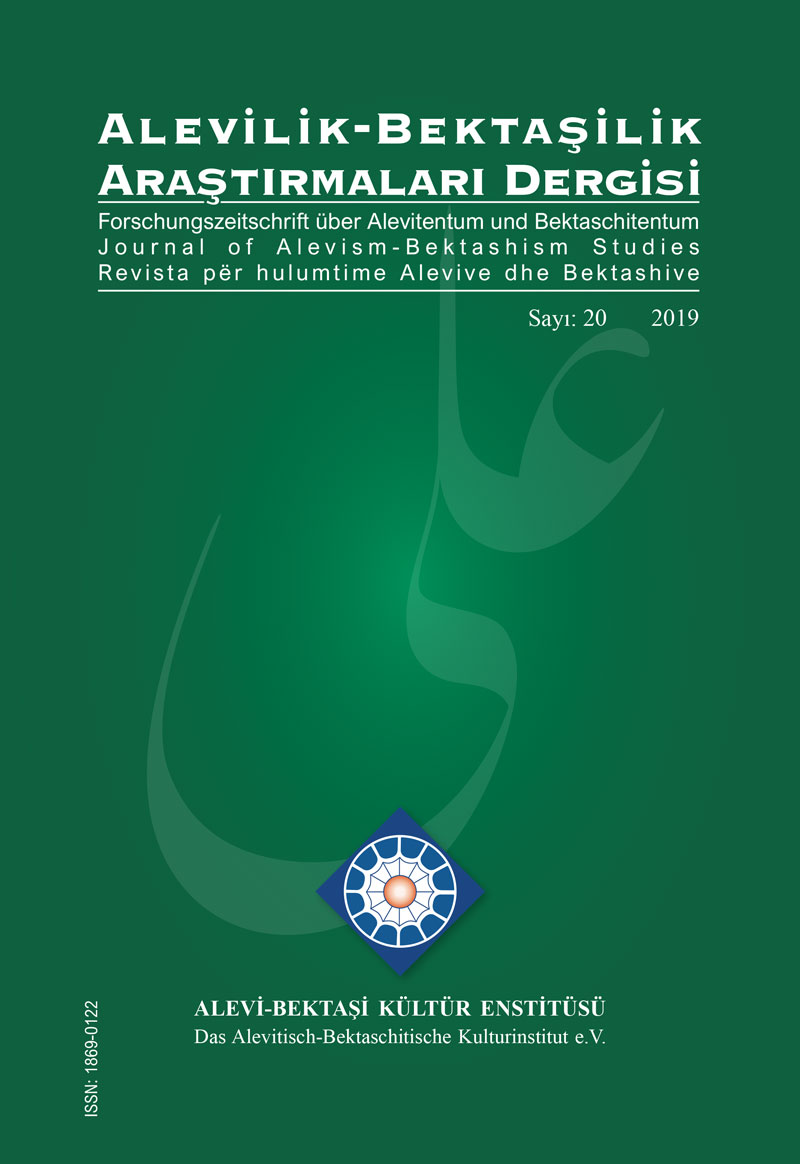The Conception of Sacrifice in Anatolian Alevi-Bektashi Faith World And the Rituals Related to Sacrifice
DOI:
https://doi.org/10.24082/2019.abked.231Keywords:
Sacrifice, Alevi-Bektashi faith world, Ancient Turkish culture, Ceremony of Jam, MuharramAbstract
The ritual of sacrificing which has existed in almost all religions and traditions since ancient times is an important ritual. It seems that especially the ancient people have performed the sacrificing ritual in order to prevent the wrath of supernatural power and not to encounter the disasters that may occur. Also, it can be seen the samples of blood sacrifice in the various communities and cultures of human history with the same factors.
It seems that Alevi-Bektashi communities which live in the region of Anatolia have fulfilled the sacrificing ritual widely. It is understood that some cultural and traditional motifs as well as some religious motifs are effective on the currency of this ritual in Alevi-Bektashi communities. This ritual in Alevi-Bektashi communities has a close relevance with Islam. Furthermore, it has the roots based on ancient Turkish culture. This ritual is called indoor/Jam sacrifices and outdoor/vow sacrifices in Alevi-Bektashi communities basically. It is fulfilled like Abdal Musa, Gorgu, Muharram, Friendship, dar/grave and holiday sacrifice.
In this paper, we will try to evaluate the conception of sacrifice in Anatolian Alevi-Bektashi faith world and sacrificing rituals with the general outline. In this framework, first of all, it is discussed that the place, importance and meaning of this sacrificing ritual in Alevi-Bektashi faith world. Furthermore, it is described the different sacrificing rituals in Alevi-Bektashi communities. Then it is presented the fulfillment of this ritual with the samples from different regions in Anatolia. The method we used in the working process implys the descriptive and analytic point of view rather than the critical and comparative point of view.








